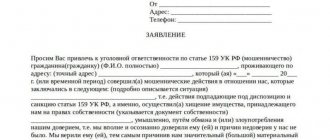Isaac Asimov once called violence “the last refuge of incompetence.” It is difficult to argue with the famous author, but if fate decreed that you were the object of violence, in particular during beatings, then the philosophizing of the cult science fiction writer will be of least interest.
What to do right away? How to involve law enforcement agencies in their direct responsibilities - protecting your rights? How to initiate a criminal case, how to correctly write a statement regarding the infliction of bodily harm? Let's look at all the nuances of the process from the point of view of Ukrainian legislation.
Where to file a report of assault?
To begin with, we will draw the entire scheme of actions in the most simplified form from the crime to the pre-trial investigation:
- The fact of causing bodily harm.
- (3) Application to law enforcement agencies.
- (2) Removal of beatings.
- Actions of the police upon receipt of a complaint.
- Registration of application.
- Entering information into the Unified Register of Pre-trial Investigations.
- Appointment of an investigator.
- Conducting an investigation.
The order of points 2 and 3 may be reversed, depending on the severity of the beatings inflicted (Article 126 of the Criminal Code of Ukraine). This will determine where and by whom the application is submitted.
What is beating?
126 of the Criminal Code, and implies the deliberate infliction of blows or other violent actions that caused physical pain to the victim. Depending on the consequences - the presence or absence of bodily injuries - as well as the methods and reasons for aggressive behavior (by a group of people, intimidation, for reasons of intolerance of various kinds), a fine or deprivation / restriction of freedom may be sanctioned as measures applied to the offender.
Light damage
At the initial stage, the “lightness” of the beatings inflicted is not yet a procedural term, and is determined solely by the victim himself based on his personal feelings. In other words, if a person feels able to submit an application, then he takes these actions or entrusts them to his representative.
The application is submitted to the police (formerly the police), and is the basis for inclusion in the ERDR, and, accordingly, initiates a pre-trial investigation.
The Law of Ukraine “On the National Police” determines that this law enforcement structure is responsible for measures taken regarding this type of offense.
The law allows for reporting a crime by mail. We still recommend registering documents in person. As a last resort, use registered mail with notification.
Serious damage
This type of beating assumes that the victim cannot contact the police himself. The primary concern is health , which means the victim should first contact doctors.
The law determines that doctors in such cases are obliged to report the fact of beating to law enforcement agencies. Consequently, the initiator of the investigation will not be the victim , which means that this option is beyond our consideration.
NTVP "Kedr - Consultant"
LLC "NTVP "Kedr - Consultant" » Services » Legal consultations » General civil issues » How and to whom to correctly draw up an application for criminal prosecution for battery and hooliganism
On 06/02/2014, applicant P., driving his Renault Logan car outside the city in SNT “ХХХ”, in accordance with the traffic rules, overtook a Daewoo Matiz car on the left side. Having stopped at SNT "XXX" he heard someone honking from behind him. Turning around, he saw that he was being pursued by a Daewoo Matiz car, which he had previously overtaken. A woman jumped out of the car and immediately started screaming on why he dared to overtake her, because. because of this, she was forced to drive in a strip of dust. After this, the woman began hitting the windshield of the Renault Logan car with her hands. P., getting out of the car, tried to explain to her that she did not have the right to touch other people’s property, much less spoil it. The man tried to hold her back with his hands, but the woman hit him in the face several times and scratched his forehead with her nails. After that, a second woman jumped out of the Daewoo Matiz car and began hitting P. with a milk carton, which broke due to the blows and spilled all over the man’s clothes. Then the woman threw a cobblestone at P., causing a superficial wound to appear on the victim’s left cheek. After this, both women inflicted numerous beatings on the man’s back, chest and arms, causing P. to have bruises and abrasions in the above-mentioned places. Subsequently it turned out that in the car there were gr. T.T.A., born in 1976 and her mother gr. T.T.N., born 1955 This incident was witnessed by the chairman of SNT “XXX” B.G.Yu. and the owner of the SNT “XXX” plot R.K.M.
After the incident, P. called the police to the scene, who recorded beatings, as well as damage to the windshield of the car. Having written a statement to the police regarding the fact of the beating and a statement to attest to the fact of damage to the windshield of the car, the victim went to the traumatology department and the forensic medical examination department, where his injuries were recorded.
The police issued a resolution dated June 11, 2014, refusing to initiate criminal proceedings against P. due to the lack of corpus delicti in accordance with paragraph 2 of Part 1 of Art. 24 of the Code of Criminal Procedure of the Russian Federation and invited the victim to contact the magistrate with an application to initiate a criminal case as a private prosecution against gr. T.T.A. and T.T.N. according to Art. 116 part 1 of the Criminal Code of the Russian Federation.
P. appealed to the magistrate (full name, district, precinct) of Izhevsk with a statement to initiate a criminal case as a private prosecution against T.T.A. and T.T.N. for intentional battery, as well as the recovery of moral damages in the amount of 10,000 rubles.
By a resolution of the magistrate (full name, district, site) of Izhevsk dated October 16, 2014, the application was returned to P. due to the fact that the victim’s application does not contain a copy of the application for the person held accountable, which is a violation of Part 5 of Art. .318 Code of Criminal Procedure of the Russian Federation.
Having eliminated the shortcomings of the application, P. again filed an application with the court.
By resolution of the magistrate (full name, district, site) of Izhevsk dated October 27, 2014, P.V. Povarnitsyn. The application was refused to be accepted for processing due to the fact that the application did not indicate the place where the crime was committed, and there was no connection to the house, which is a violation of Parts 5 and 6 of Article 318 of the Code of Criminal Procedure of the Russian Federation.
In an oral conversation, the judge informed P. that the victim needed to file an application not under Part 1 of Art. 116 of the Criminal Code of the Russian Federation, and according to Part 2 of Art. 116 of the Criminal Code of the Russian Federation for its subsequent transfer to the police, since the specifics of private prosecution cases are quite difficult, because in this case, the victim himself will have to support the accusation.
Doubting his legal literacy and wanting to fairly punish the perpetrators, applicant P. sought legal help.
The applicant's questions: How and to whose address should one correctly draw up an application for criminal prosecution for battery and hooliganism?
Do law enforcement agencies act lawfully in refusing to initiate criminal proceedings against a victim, and what method of bringing criminal charges in this case is the most preferable?
Lawyer's answer.
As a result of the conversation, the circumstances and documents in the case were clarified, in particular, whether there were witnesses to this incident, whether an appeal was filed against the decision of the Magistrate dated October 27, 2014, a copy of the application to initiate a criminal case as a private prosecution with attachments; copies of decisions of the magistrate dated 10/16/2014, dated 10/27/2014
According to Part 1 of Art. 20 of the Code of Criminal Procedure of the Russian Federation, depending on the nature and severity of the crime committed, criminal prosecution, including charges in court, is carried out in public, private-public and private. According to Part 2 of Art. 20 of the Code of Criminal Procedure of the Russian Federation, criminal cases of crimes under Art. 115 part one, 116 part one, 128.1 part one of the Criminal Code of the Russian Federation are considered criminal cases of private prosecution, initiated only at the request of the victim, his legal representative, with the exception of cases when this crime was committed against a person who, by virtue of being dependent or helpless condition or for other reasons cannot protect their rights and legitimate interests. Thus, the crime provided for in Part 1 of Article 116 of the Criminal Code of the Russian Federation refers to cases of private prosecution, in which a criminal case is initiated only at the request of the victim or his legal representative.
According to Part 1 of Art. 21 of the Code of Criminal Procedure of the Russian Federation, criminal prosecution on behalf of the state in criminal cases of public and private-public accusations is carried out by a prosecutor, as well as an investigator and an interrogating officer.
From this we can conclude that the provisions of Part 2 of Art. 116 of the Criminal Code of the Russian Federation relate to cases of private prosecution, in which the investigation should be carried out by law enforcement agencies, and not by the victim himself. In addition, the injured P. is not one of those persons who, due to a dependent or helpless state or for other reasons, cannot protect their rights and legitimate interests. Article 115 of the Criminal Code of the Russian Federation talks about the intentional infliction of minor harm to health, causing a short-term health disorder or a minor permanent loss of general ability to work. However, a short-term health disorder or a slight permanent loss of general ability to work is usually understood as being in a medical institution, a slight loss of limb function.
Since P. did not have a short-term lack of health or its permanent loss, the police authorities quite rightly classified this crime as a case of private prosecution in accordance with Part 1 of Art. 116 of the Criminal Code of the Russian Federation, according to which a criminal case is initiated only at the request of the victim.
According to paragraph 1 of Article 116 of the Criminal Code of the Russian Federation, beating or committing other violent acts that caused physical pain, but did not entail the consequences specified in Art. 115 of the Criminal Code of the Russian Federation.
However, the question arises why the police classified this crime under Part 1 of Art. 116 of the Criminal Code of the Russian Federation, and not under Part 2 of Art. 116 of the Criminal Code of the Russian Federation - beatings with hooligan motives and thereby, on completely legal grounds, issued a decision to refuse to initiate a criminal case in accordance with paragraph 2 of Part 1 of Art. 24 Code of Criminal Procedure of the Russian Federation? This circumstance forced P. to turn to the magistrate with a statement to initiate a criminal case as a private prosecution.
In the lawyer’s opinion, the police did not take into account the fact that P. was not familiar with T.T.A. and T.T.N. However, beatings for hooligan reasons have a broader focus; in particular, they are associated with a violation of public order, expressed in clear disrespect for society and its social foundations. The decisive factor here is the direction of intent. T.T.A. and T.T.N. committed a crime against a specific driver who they thought had illegally overtaken, and not against any passerby. In this situation, the offenders did not show obvious disrespect for society by their act, as would be the case if the victim was clearly a stranger.
From the above it follows that the actions of the police authorities, who refused P. to initiate a criminal case under Art. clause 2, part 1, art. 24 of the Code of Criminal Procedure of the Russian Federation and qualifying this crime under Part 1 of Art. 116 of the Criminal Code of the Russian Federation are lawful, since Part 1 of Art. 116 of the Criminal Code of the Russian Federation refers to criminal cases of private prosecution, initiated only at the request of the victim or his legal representative. In this case, the magistrate’s point of view is that P., in order to initiate a criminal case, must send an application to the magistrate in accordance with Part 2 of Art. 116 of the Criminal Code of the Russian Federation for its subsequent transfer to the police is untenable. If these conditions are met, the police will again refuse P. to initiate a criminal case under paragraph 2 of Part 1 of Art. 24 Code of Criminal Procedure of the Russian Federation.
In this situation, P. needed to correctly draw up a statement in compliance with the requirements of Art. 318 Code of Criminal Procedure of the Russian Federation.
After checking P.’s application, the lawyer proposed making the following changes:
— indicate your passport details in full in accordance with clause 3.1, part 4, art. 318 Code of Criminal Procedure of the Russian Federation;
- add references to Part 1 of Art. to the text of the application. 116 of the Criminal Code of the Russian Federation and Art. 147 of the Code of Criminal Procedure of the Russian Federation, which the victim did not indicate in the statement;
- in the text of the application, instead of the words: “I ask you to initiate a criminal case and bring citizen T.T.A to criminal responsibility. ..." write: "I ask you to accept the case for proceedings and involve T.T.A. and T.T.N. to criminal liability for committing a crime under Part 1 of Art. 116 of the Criminal Code of the Russian Federation." The applicant was explained his right to re-apply to the magistrate within the 2-year statute of limitations, as well as the consequences of filing an application after the expiration of the statute of limitations, since in this case the court would quite reasonably rule on the refusal to accept the application for proceedings on based on clause 3, part 1, art. 24 of the Code of Criminal Procedure of the Russian Federation due to the expiration of the period for bringing to criminal responsibility.
In case of another refusal, it must be appealed to the district court of Izhevsk through a magistrate within 10 days from the date of issuance.
Thus, the police lawfully refused P. to initiate a criminal case under paragraph 2 of Part 1 of Art. 24 of the Code of Criminal Procedure of the Russian Federation and suggested that the victim contact the magistrate with a statement to initiate a criminal case as a private prosecution in accordance with Part 1 of Art. 116 of the Criminal Code of the Russian Federation. The judge's arguments about the possibility of reclassifying this case from private to public by submitting an application to the magistrate to initiate a criminal case under Part 2 of Art. 116 of the Criminal Code of the Russian Federation for subsequent investigation of the case by the police are untenable, since the qualifying features determine this crime precisely under Part 1 of Art. 116 of the Criminal Code of the Russian Federation. Since by Part 1 of Art. 116 of the Criminal Code of the Russian Federation refers to criminal cases of only private prosecution; they are initiated only at the request of the victim or his legal representative. The police have no grounds to initiate a criminal case under this article. To attract guilty persons, the Code of Criminal Procedure of the Russian Federation provides only for filing an application to initiate a criminal case as a private prosecution. In this case, a preliminary investigation is not carried out, and P. will be forced to independently prove both the fact of committing a crime and the guilt of a specific person, bypassing the mandatory procedural stages of pre-trial proceedings in other situations (in cases of private-public and public prosecution). Thus, in accordance with the current legislation, the magistrate’s court (district, site) of the city of Izhevsk UR is obliged to accept the application of the PV. and bring the perpetrators to criminal liability under Part 1 of Art. 116 of the Criminal Code of the Russian Federation.
Skvortsov Alexey Valerievich, consultant of the legal department of the FSS for sustainable development, 8-950-175-32-59
Consultation given in November 2014.
How to properly write a statement to the police about a beating?
However, we would like to remind you that the submitted application must be registered in the ERDR, and the data to be entered into the register is established by law. Based on the Regulations of the Prosecutor General’s Office “On the procedure for maintaining the Unified Register of Pre-trial Investigations” (clause 1 of Article 2), as well as the general provisions of the Code of Civil Procedure of Ukraine, it is possible to formulate a list of data that the application must contain:
- To whom . As a rule, the head of the police department to which the victim applies, or the person performing his duties. There may be another authorized person. The employee on duty should provide accurate information.
- From whom . Data of the person submitting the application that uniquely identifies him (full name, date of birth, residential/registration addresses, passport, contacts). In the case of a representative, his details are indicated, as well as information about the person on whose behalf he acts.
- Circumstances . A statement of what happened, with an emphasis on acts that may be classified as criminal offenses. Place, time and other parameters of what happened. Indication of the exact articles of the laws violated is not required, but it is not prohibited if they are known to the applicant.
- Information about the attacker . Everything the applicant knows about the person or persons who committed the crime.
- Witnesses . If available, information about such persons is indicated.
- "Ask" . A separate section that includes a list of the applicant’s demands (initiate a case, detain the perpetrators, report the results, etc.).
- List of attached documents . Everything that may be relevant to the case, including medical certificates, powers of attorney for a representative, etc.
The document may contain any other relevant information. The application ends in the standard way: date and signature.
The police officer on duty must accept the application, make an appropriate mark on it or issue a special ticket. For these purposes, the application must be written in two copies so that one of them, with a mark, remains in the hands of the applicant.
Procedure for filing a complaint about beatings
Let's consider the complete sequence of actions from the moment the offense was committed to the initiation of the case.
Step 1. Place of delivery
It has already been mentioned that this can be by mail or personal submission. We will consider the last option as an example. The application can be filed at the victim’s place of residence, the scene of the incident, and other places. To simplify understanding, we can conclude:
The victim has the right to file a complaint at any police station 24 hours a day.
Step 2. Documents of the applicant and about the attack
We've already talked about this, so let's briefly summarize:
- Application – 2 copies.
- Passport of the victim/applicant.
- Power of attorney, if the applicant is an authorized representative.
- Medical certificate about beatings. If there is one, more about this in the next step.
- Other documents relevant to the case.
To control what is happening, you need to receive your sample application with the appropriate mark from the duty officer. However, the fact of filing does not always mean that registration will be made immediately.
Step 3. Removing the beatings
This is a special procedure that we discussed in detail in this material. Let us remind you that if the beatings were not removed before filing a statement, then the police must refer the victim to this type of examination, the result of which will be a detailed certificate about the state of health of the victim and the likely consequences of the impact in question on the victim.
Step 4. Entering personal injury data into the register
Having provided all the documents, the application is registered. The applicant is warned against giving false testimony. An investigator is appointed. Within 24 hours, the application must be entered into the ERDR (Article 3 of the Regulations on the procedure for maintaining the Unified Register of Pre-trial Investigations).
The victim, on the basis of paragraph 2 of paragraph 2 of Article 56 of the Code of Civil Procedure, has the right to receive a document confirming the entry of his application into the Unified Register of Registered Register of Registers. Based on Article 4 of the Regulations, such a document is an extract from the register.
It is in the interests of the victim to control the entry of the application into the register, as well as the data indicated in it.
Statute of limitations
Specifically for this type of case, the statute of limitations is not prescribed by law. However, there are general provisions within which beatings can be considered.
Assault is a criminal offense. Accordingly, the provisions of the Criminal Code regarding statute of limitations are also applicable to it. In the context of the issue at hand, this is:
- Two years , if the crime did not involve imprisonment (clause 1, clause 1, article 49 of the Criminal Code).
- Three years , if imprisonment could have been applied due to the circumstances of the incident (clause 2, clause 1, article 49 of the Criminal Code).
We will return to the topic of punishment for beatings in a little more detail at the end of the material.
When can a document be refused?
The application will not be registered, and, therefore, the case will not be initiated if the responsible officer considers that the evidence presented is insufficient for a pre-trial investigation .
A person who considers himself a victim has the right to challenge such a decision within ten days.
Sample application
Here you can see a sample statement to the police, using which it will not be difficult to write a statement yourself.
We recommend that you describe the events in your statement in as much detail as possible, as details are a contributing factor to the police's resolution of the case. To a greater extent, this applies to those cases when the offender is a complete stranger to you.
Download
Sample statement to the police about beatings (.doc)
What kind of beating will happen?
Punishment in cases of beatings is determined by Article 126 of the Criminal Code:
- If grievous bodily harm is not inflicted : a fine of up to 50 non-taxable minimums;
- community service up to 200 hours;
- correctional labor for up to 1 year.
- restriction of freedom up to 5 years;
The severity of the damage inflicted is determined procedurally on the basis of a medical examination.
What is considered a crime?
Today, beatings are considered a crime if it is proven that they were committed with hooligan motives or because of national, racial, religious hostility or social inequality. The guilty person will be held accountable on the basis of Article 116 of the Criminal Code of the Russian Federation.
If the primary charge is battery, it is classified as a misdemeanor. The guilty party will face punishment based on the Code of Administrative Offenses (Article 6.1.1).
If the charge of battery is repeated, it is treated as a crime. Punishments in this case are determined on the basis of the Criminal Code (Articles 116 and 116.1).
The specified legislative norms for the offense do not take into account the consequences that may occur as a result of beatings. These will be considered any consequences that lead to harm to health (mild, moderate or severe).
The criteria for determining the severity of harm caused to health, in an exhaustive version, are presented in Government Decree 522 of 08/17/07.
According to the Law, harm to health is a violation of the integrity of tissues, organs or their functionality that occurs as a result of physical influence from the outside. Conventionally, the degree of harm is usually divided into three groups - mild, moderate and severe.
As for the advisability of contacting the police, from the point of view of the Law, it should be done in any of the listed cases. Subsequently, upon submission of the application, an inspection will be organized, the victim of the beating will be sent for a medical examination, the parties to the conflict situation and witnesses will be interviewed.
How to withdraw a complaint from the police?
All cases, upon acceptance for consideration, are registered in the ERDR. The case may be closed. However, in case of beatings, this is extremely difficult to do. If, for example, we were talking about suspicion of theft, and then the allegedly stolen items were found, then you can insist on closing the case (in the absence of mutual claims).
But in case of beatings, it is not worth declaring that the initially presented evidence does not correspond to reality! In this case, the applicant may be charged with perjury.










